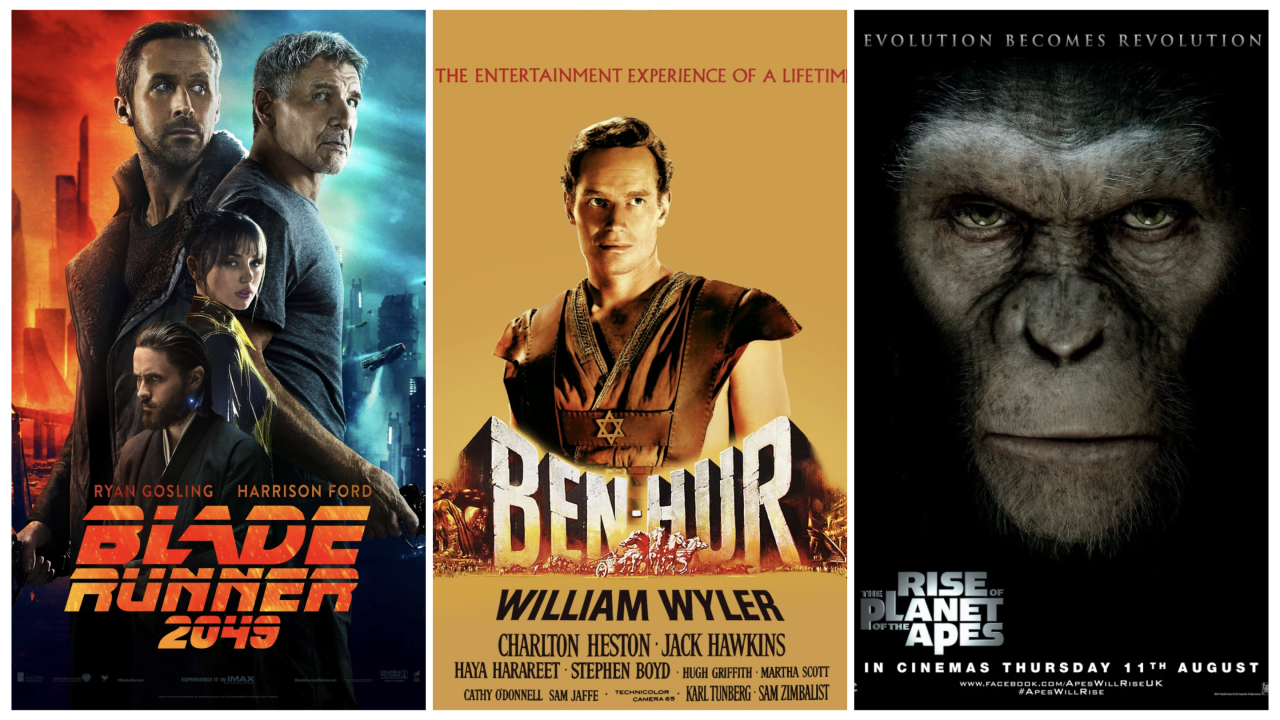Reboots, remakes, and sequels are a common trend in Hollywood right now, which has many people angry. People are mad for two main reasons: one being that their favorite franchises are being rebooted and the other for the lack of creativity. The latter reason is quite understandable. Why would Hollywood remake something that has already been done? Why not make something new? The simple answer is because of money. Remaking a film especially one with name-recognition, like The Murder on the Orient Express, is a sure-fire way of bringing in money. While a film like The Murder on the Orient Express brought in millions, not every remake is a guaranteed success. When Paramount and MGM remade Ben-Hur in 2016, it only made 94 million dollars on a budget of 100 million dollars. While people may not like remakes, reboots, and sequels, I do not mind them. In fact, I am usually optimistic about their success. I believe that many reboots, remakes, and sequels improved on their original material and, in many cases, were far superior to their predecessor.
It should be stated that many acclaimed films were remakes. While Paramount and MGM remade Ben-Hur in 2016, the 1959 film was itself a remake. Ben-Hur was made twice before in 1907 and 1925; however, the 1959 film was the first version to be both in color and with audio. Even a film like Scarface was a remake. The 1983 film starring Al Pacino and directed by the incredible Brian De Palma was a remake of a film with the same name from 1932. However, this version improved on its predecessor as it told a similar but different story. Instead of being an Italian immigrant in Chicago selling booze, Tony Montana is now a Cuban immigrant selling cocaine in Miami. The 1983 film is now a cultural icon, with many people wearing T-shirts and hanging posters of Al Pacino as Tony Montana. Another example of a film being better than the original is Ocean’s 11. The 2001 film, directed by Steven Soderbergh, was far more superior than the original. Some other remakes that were better than the originals were The Fly, The Thing, The Birdcage, A Star is Born, True Grit (2010), and so much more.
Furthermore, like remakes, many reboots improved on the original films. For those confused, a remake is when a film’s story is being made again. A reboot is when a pre-existing franchise is being either reset, continued, or retold. For example, every time James Bond is replaced, it’s a reboot. One of my favorite reboots was the Planet of the Apes. When I saw that it was being rebooted back in the early 2010s, I thought it was stupid. However, once I found out that the film was not remaking the original 1968 film but instead, showing the “rise” of the apes, I was intrigued. When I finally saw the film, I thought it was amazing. The first film left such an impression on me that I watched all the sequels the moment they came out in theaters. The reboot of the Planet of the Apes franchise is the reason why I’m ok with remakes and reboots.
As mentioned, many people show great distaste towards sequels to films. This is understandable. Did franchises like Die Hard, Rambo, Terminator, and many other 80s franchises really need a sequel in the 2000s? While these franchises’ first films and their sequels were actually good, their attempts to make sequels in the 2000s were painfully unnecessary. Rambo (2008) came out 20 years after the previous one and was not well received. However, one sequel, with a long gap in-between, that was actually good was Blade Runner 2049. This sequel, which came out 35 years later, was a visual masterpiece and told a great story about what it means to be human. The film even won Best Cinematography and Best Visual Effect at the Oscars that year. This film is a perfect example of why people should give sequels, that seem unnecessary, a chance.
While I have been very friendly towards remakes, reboots, and sequels, I do believe that there are some films that should not be touched. I believe that great epics like Ben Hur, Lawrence of Arabia, and Cleopatra should not be touched. It is impossible for anyone to recapture the grand scale of these films. Second, any film that made ground-breaking achievements in filmmaking should not be touched either. This includes films like Casablanca, Citizen Kane, The Wizard of Oz, and 400 Blows. The reason behind this is the same as my views on the classic epics. No one can ever recapture the magic of these films. However, it is fine to remake these films if it tries something completely different. Seven Samurai was remade in America with The Magnificent Seven, but it tried something different. Instead of Samurai in ancient Japan, they did cowboys in the old west.
Next, a property that is so attached to the actor playing him, should not be rebooted either. For example, Indiana Jones cannot be played by anyone else besides Harrison Ford. Nor can I imagine Columbo being played by someone who isn’t Peter Falk. While many franchises were able to do this like James Bond and Sherlock Holmes, it does not work all the time. Finally, the message I would like to leave on is that you should be hopeful every time Hollywood remakes, reboots, or makes a sequel. While sometimes they fail, many times they can tell a great story that is worth your time.

Leave a Reply